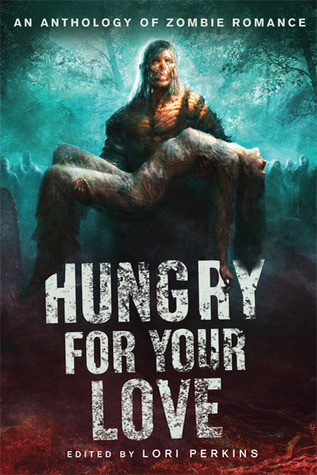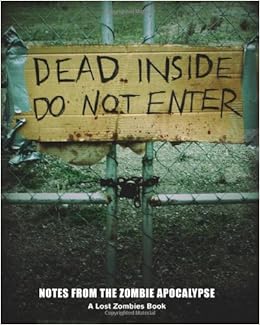One of the things that jumped out at me when reading Dead Inside: Do Not Enter, is that there
doesn't really seem to be a genre or form of literature, or even art generally,
that zombies cannot make their own. Clearly, as a horrific figure, even THE
horrific figure of the 21st century, the zombie is most perfectly suited for,
well, horror (surprise!).
 |
| F.M.L. |
Unsurprisingly, given their typically
post-apocalyptic (or just outright apocalyptic) settings, and the pervasive
dread and uncertainty of their tales, our favorite dead things are quite at
home in suspense, science fiction, and fantasy narratives as well. As it
turns out, however, zombies have been able to make a place for themselves
pretty much everywhere.
Comedy?
Check.
Romantic comedy?
Yup.
Romance sans chuckles?
You effin' betcha.
Historical fiction?
Why not.
Epistolary?
Kinda.
The same can be
said for literary forms. Although I would contend that zombies are first and
foremost a visual monster and thus best situated for film and/or TV (why aren’t
there more zombie TV shows? World War Z the series! Are you telling me people
wouldn’t watch that? I want it now! Let’s get a Kickstarter goin’ and put that
shit on HBO), they have been able to spread across
literary forms as
seamlessly as they have genres. Comic books were pretty much a given (another
visual medium), but there is no shortage of really good zombie novels, short
stories, and even poetry. That’s right, really good zombie
poetry. Don’t scoff at me. I’ll have a post up on “Isabelle” by the end of the week. Beyond just
chronicling how awesome zombies are, though, or pointing out their inexorable
march across pretty much any and every form of art, I’m wondering if there
isn’t something about zombies in particular that allows for this level of
omnipresence (I feel like I might use the word ubiquity too much, so I tried
something new; I don’t like it; I’m going back to ubiquity from now on).
I’m still not sure where I sit on all this, so this might
get a little stream-of-conscious-y as I work through some stuff.
Okay, before we go too much further, part of what I’d like
to do is to attempt to categorize the zombie itself. I don’t mean define it.
Well, not yet at least (Romero explicitly defines zombies, even without using
that word, in Night and Dawn; the fact that nobody, Romero
included, strictly abides by that definition makes it worth discussing – later).
Instead, I’d like to identify its place as a literary device. Frequently, when discussing zombies, people (like me) will throw around the word "monster." And a zombie
is definitely that: a monster. But it is never just about a zombie, is it? I mean that in two ways.
First, much of the horror
of the zombie figure is situated in its plurality – its teeming, swarming, ever-growing,
overwhelming plurality. This doesn’t make it less of a monster, but it makes it
its own kind of monster. I’d like to explore that a little bit.
However, I was
also gesturing to the fact that zombies are rarely just zombies, no matter where or in what form we encounter them. Zombies
are almost always figurative representations of… stuff. And that’s where I run
into trouble. Zombies operate like allegories (most zombie narratives are clearly
allegorical, whether it’s intentional or imposed by the viewer/reader), but to
categorize zombies as allegories, to me, seems to imply a stable underlying
meaning. See, when I try to say “Zombies are allegories,” I can’t help but
think that I am inviting the problematic reply: “Of what?” What do you call a
figure that almost always operates with an underlying meaning but whose underlying
meaning is never set? If we look at allegories as extended metaphors, then
zombies are vehicles with tenors that are constantly shifting. Not just from
text to text, but from reader to reader. In many ways, they behave like floating
signifiers, a concept introduced by Claude Levi-Strauss to denote (and this is
a gross, almost offensive, oversimplification) terms that have no meaning, or
rather that have no agreed upon meaning, and thus are able to mean anything
(actually, as far as oversimplifications go, that’s pretty solid; take that
semiotics!).
Is a floating allegory a thing? It should be. Zombies are floating allegories.
Done.
I have a lot more to say on this, but I need sleep (Levi-Strauss and I.A. Richards in a zombie blog? I've earned a nap). We’ll get
further into why zombies are so open to allegory and multiple meanings and
discuss the whole horde monster thing tomorrow. Err... later today.









No comments:
Post a Comment